Legal Analysis: ASIC v Cassimatis under the Corporation Act 2001
VerifiedAdded on 2023/01/05
|8
|736
|72
Case Study
AI Summary
This case study analyzes ASIC v Cassimatis, focusing on breaches of duty by the directors of Storm Financial Services under the Corporation Act 2001. The assignment addresses the capacity of the corporation, triggers for litigation, sought remedies, and the court's outcome, including penalties and director suspensions. It explores whether the case could have been avoided, contrasts the legal treatment of corporations versus natural persons, and discusses the medium and long-term consequences. The analysis highlights the importance of directors fulfilling their responsibilities to maximize shareholder benefits and avoid legal repercussions, referencing relevant legal principles and scholarly sources. The study emphasizes the application of the risk-benefit test and the implications of breaching corporate law, providing a comprehensive overview of the case's legal and practical significance.
1 out of 8
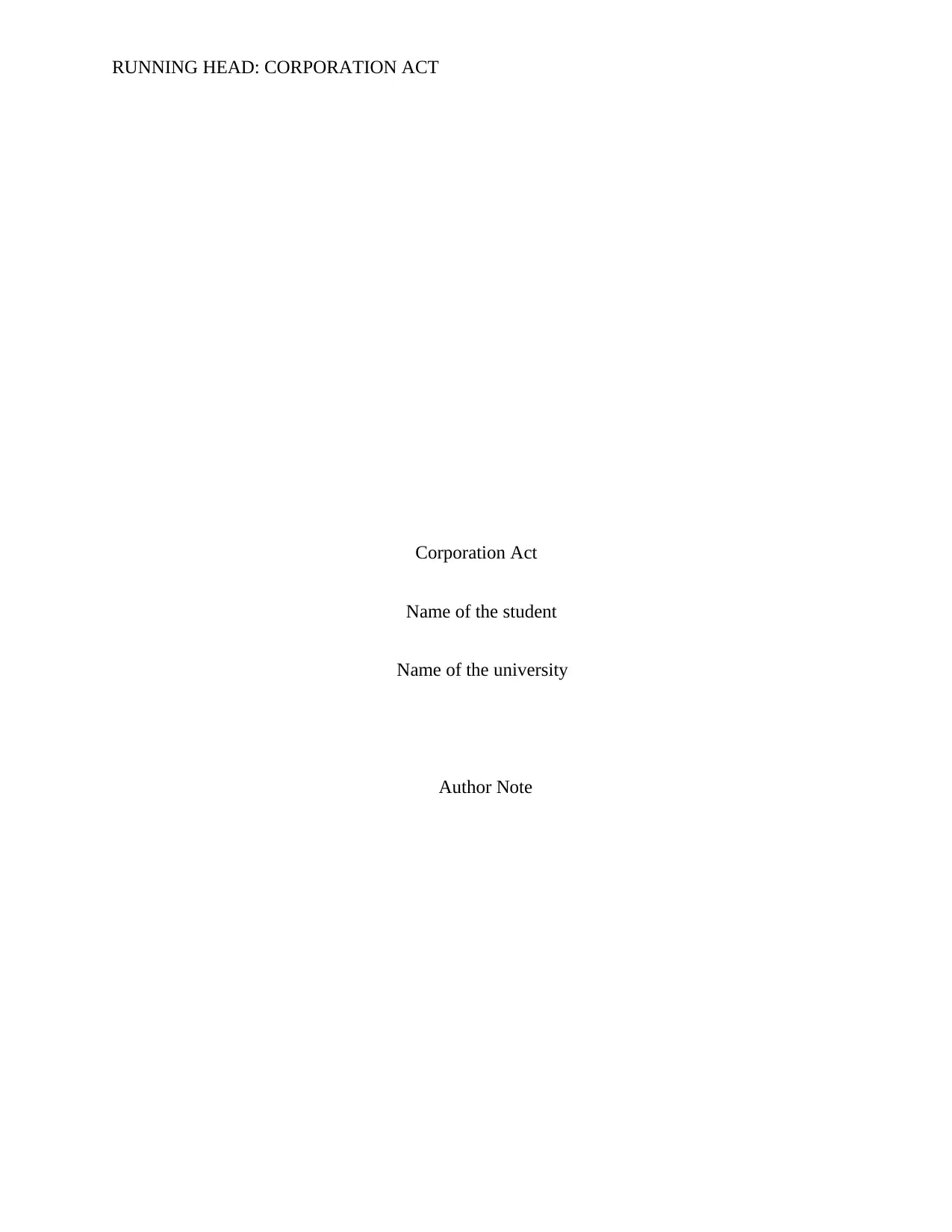
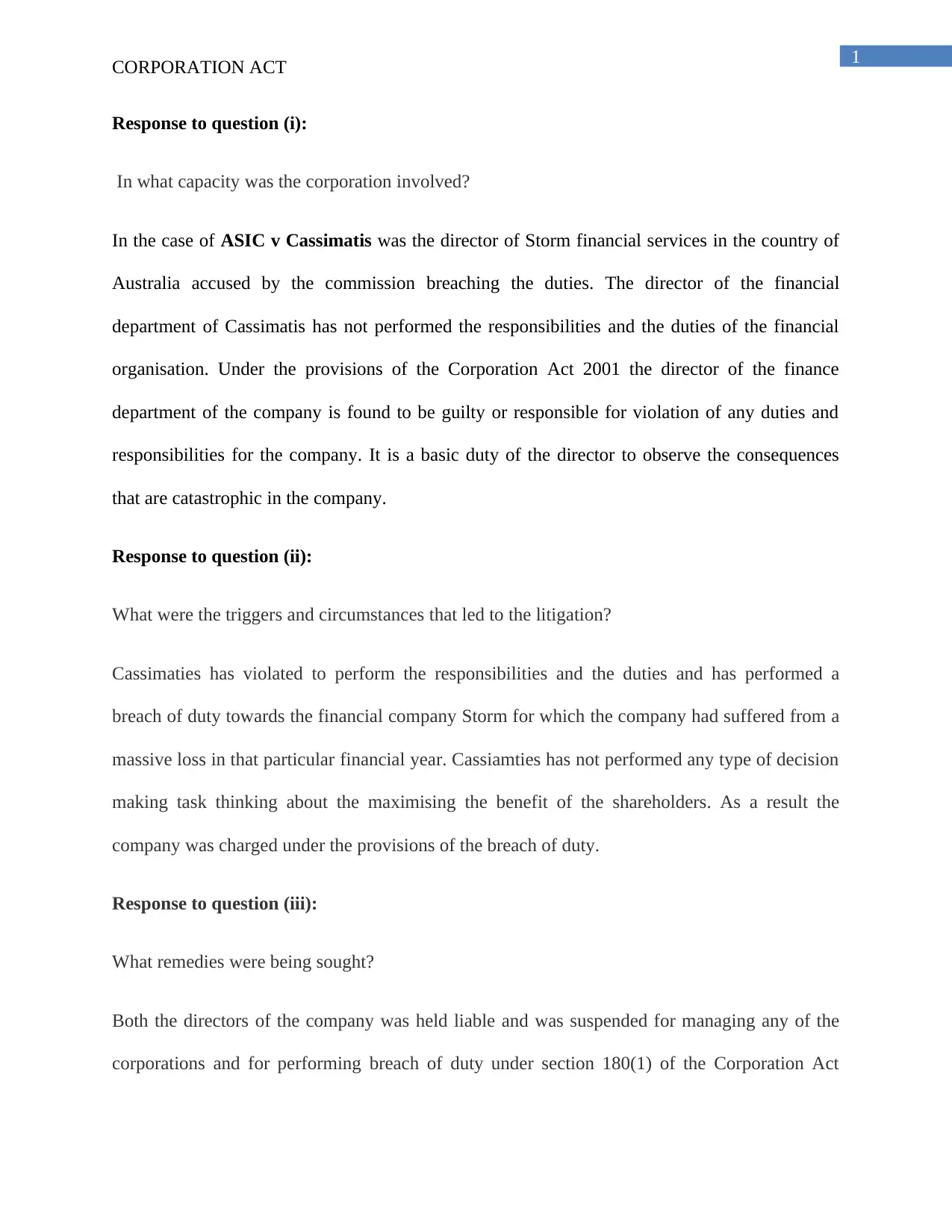
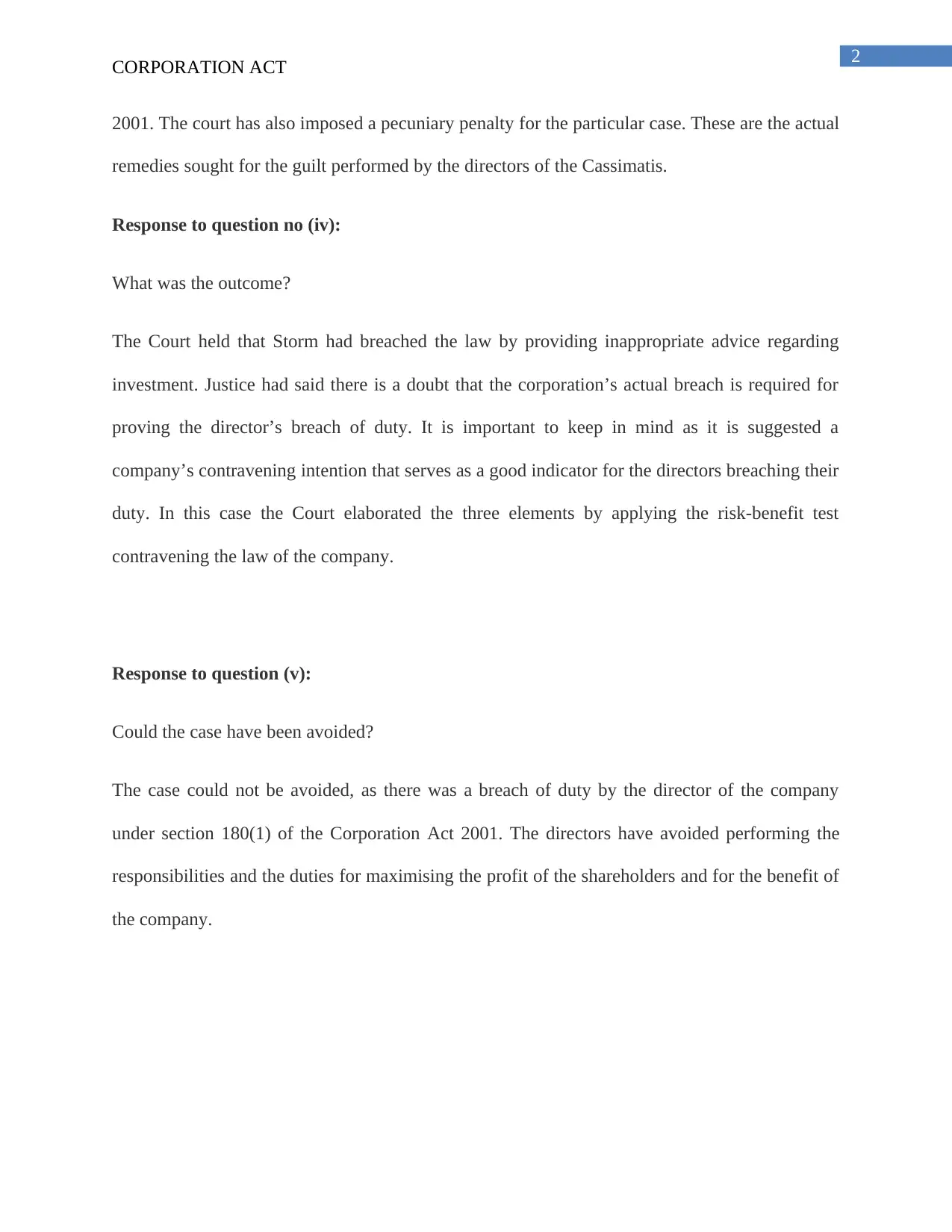

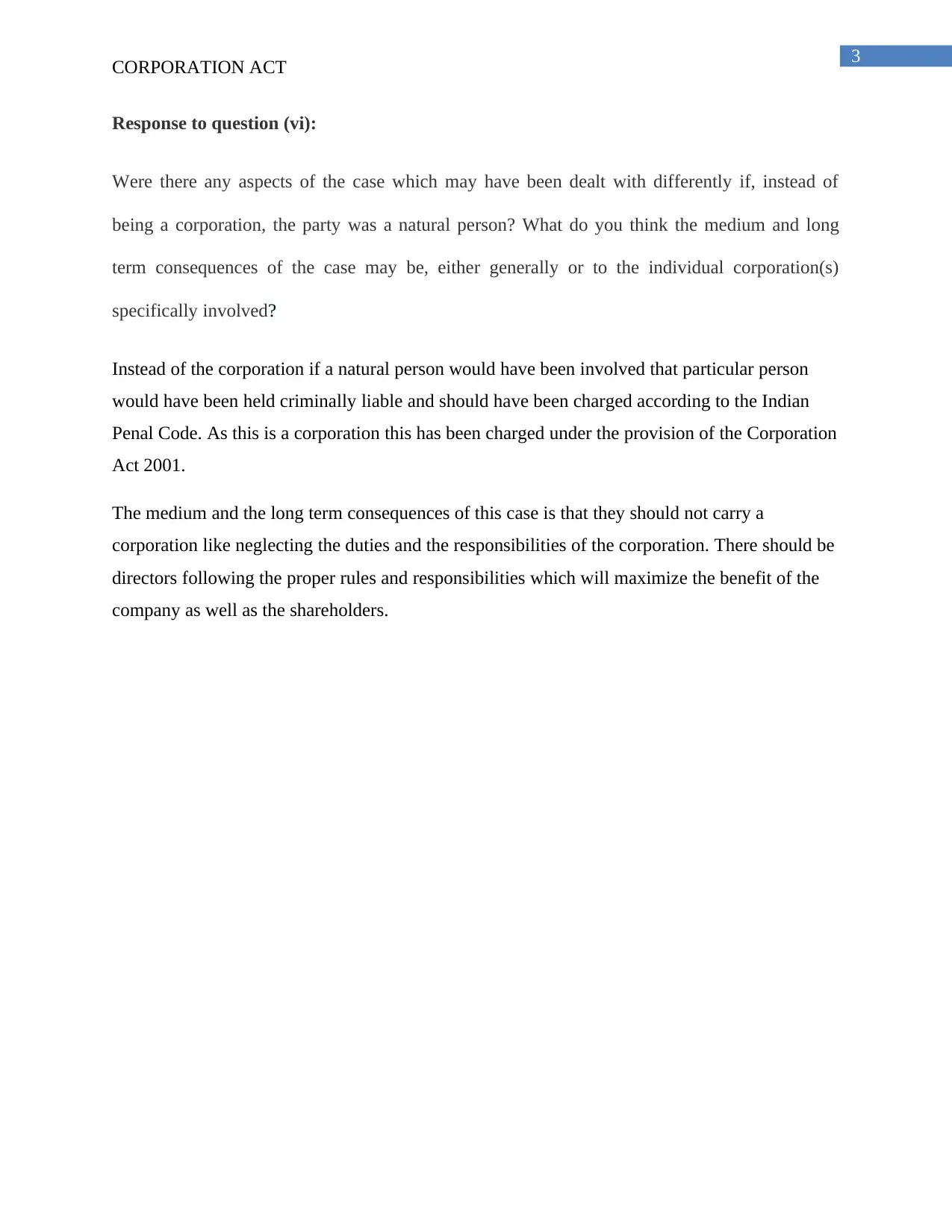
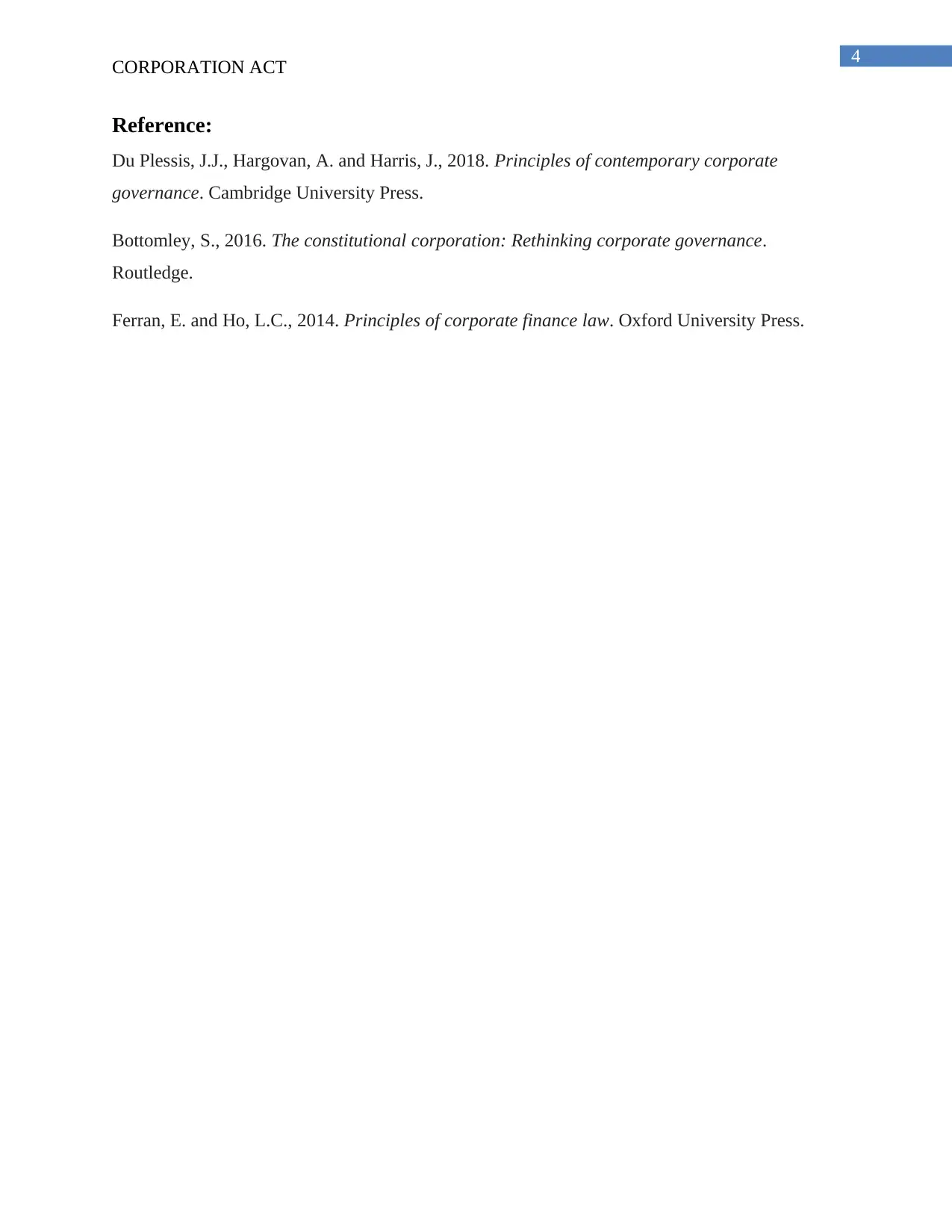
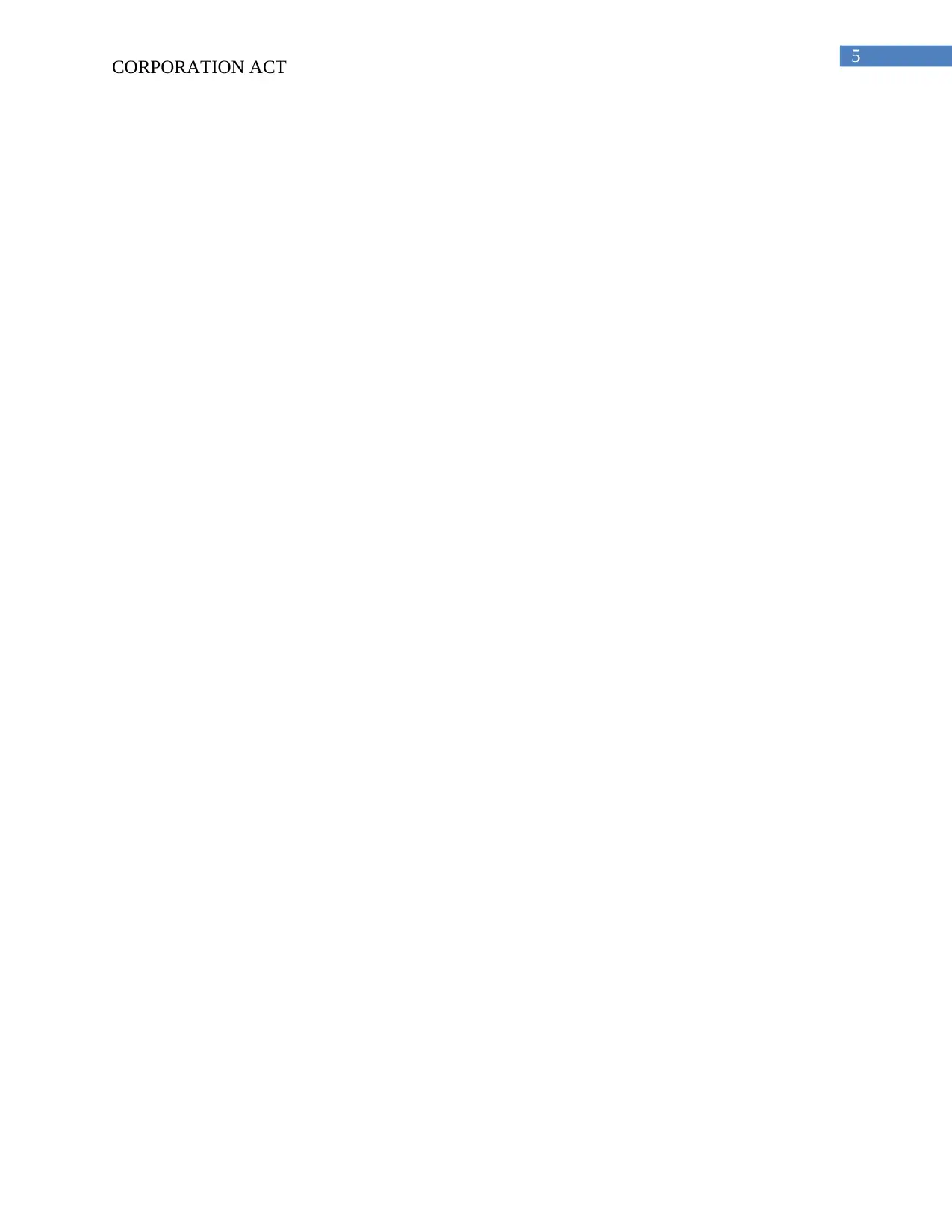
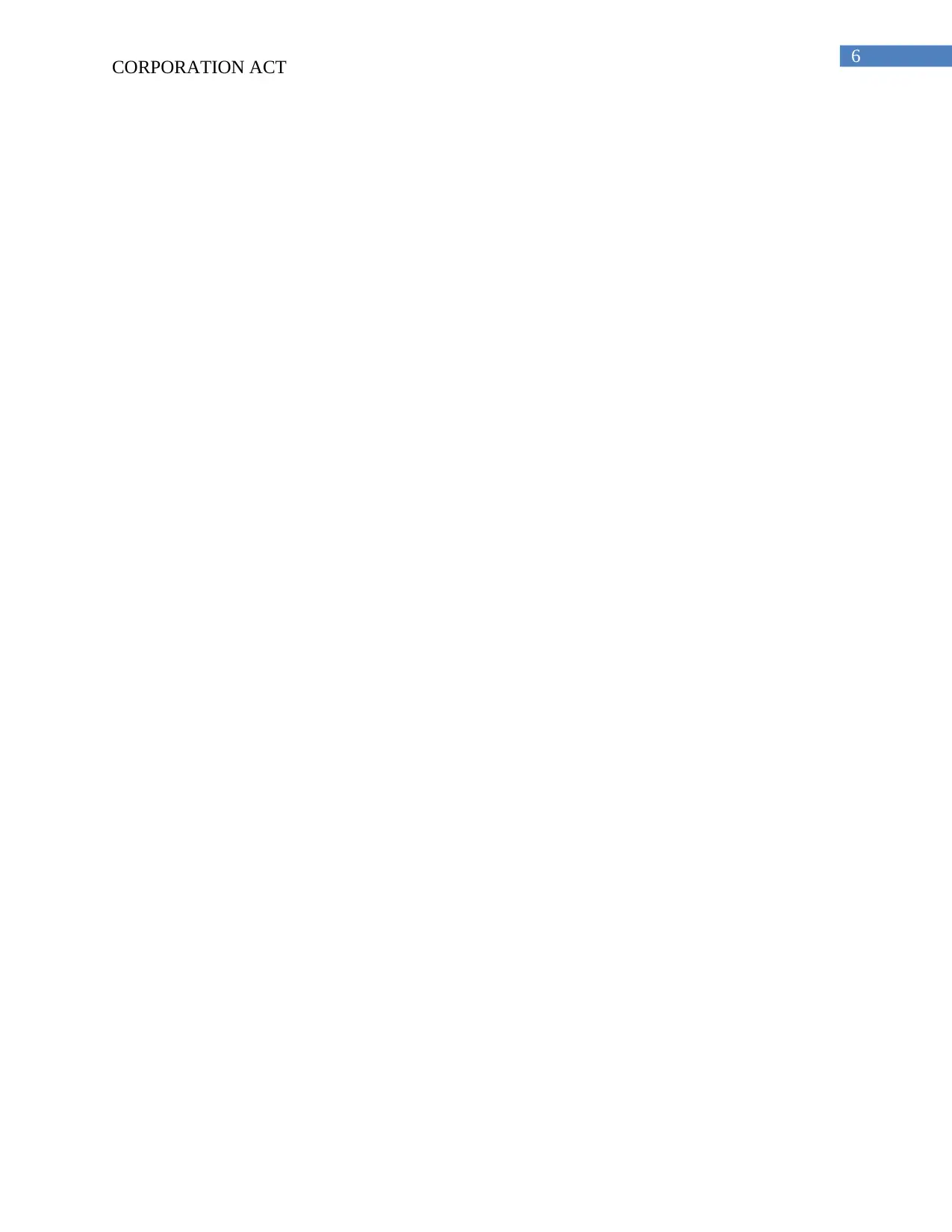
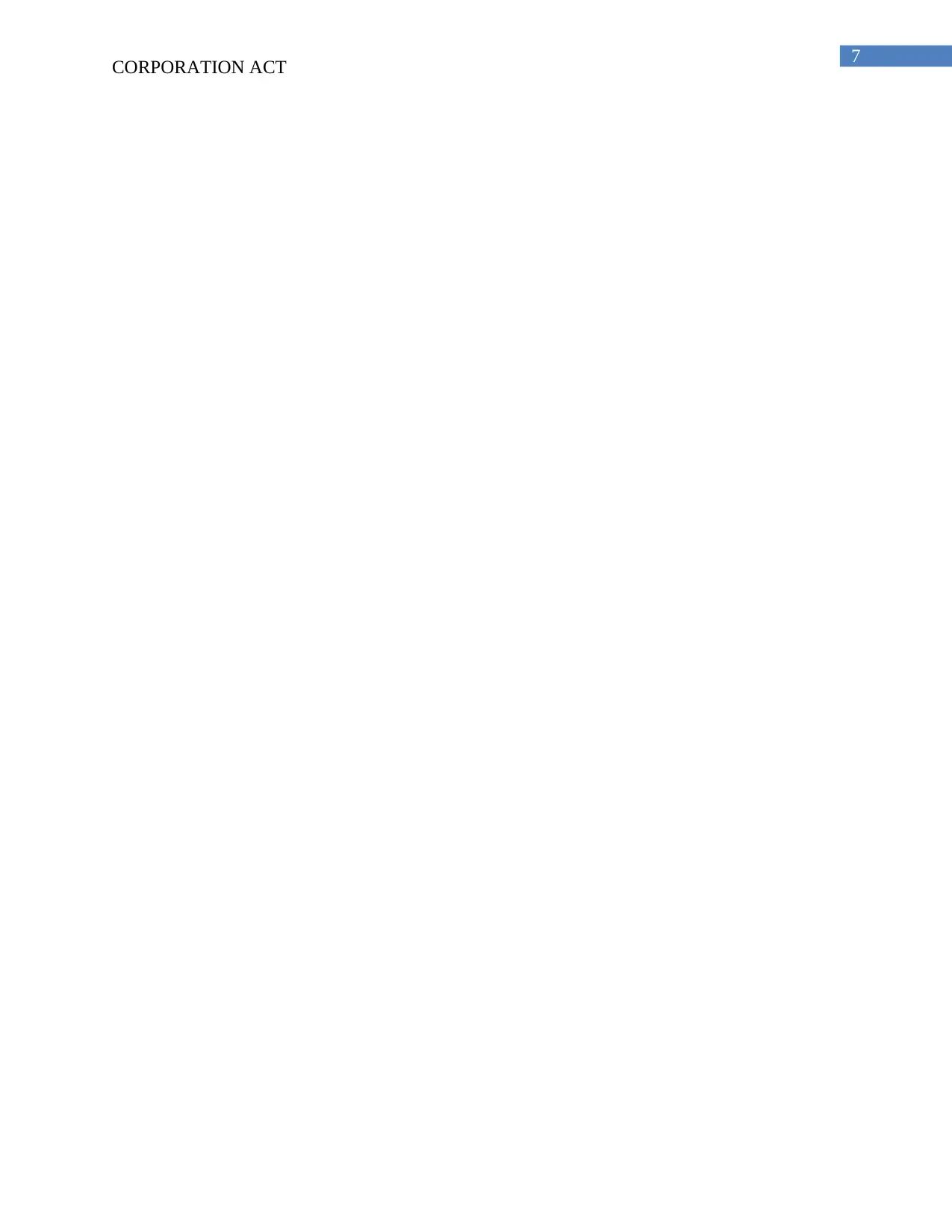




![HA3021 Corporations Law: Case Study on ASIC v Cassimatis [2016]](/_next/image/?url=https%3A%2F%2Fdesklib.com%2Fmedia%2Fasic-cassimatis-breach-director-duty_page_2.jpg&w=256&q=75)
![[object Object]](/_next/static/media/star-bottom.7253800d.svg)